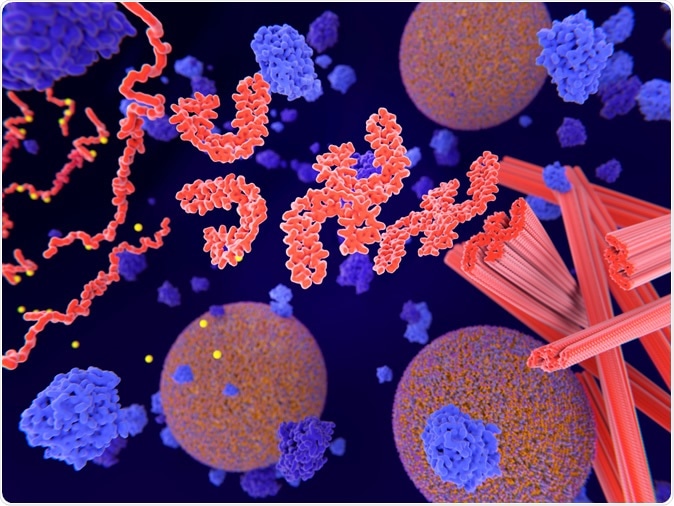AD is a debilitating progressive brain disorder that robs the victim of personality, memory, and other critical cognitive skills. The root cause is the degeneration of brain cells which leads to dementia. Dementia is a term that refers to the decline of thinking, behavior, and social skills, significantly impairing the person's capacity for independent living.
AD is the most common cause of dementia in the US, with about 5 million Americans being affected by it. The condition takes an immense toll on the patient and caregivers. In the UK alone, there are about 850,000 people with dementia. At present, there is no cure for this condition. Some medications may help some people with AD to live independently a while longer.
The disease is named after Dr. Alois Alzheimer, who, in 1906, examined the brain tissue from a woman who had died of mental illness, showing loss of memory, problems with language and confusing behavior. The brain showed clumps and tangles of proteins, which are now called amyloid plaques and neurofibrillary tangles, respectively. These are still thought to be among the primary features of AD.
Moreover, nerve cells in AD appear to lose connection with each other, disrupting the neural networks that are the most essential fundamental structures endowing the brain with its immense range of functionality. Initial nerve cell damage appears to be in the hippocampus, which is the brain area related to memory formation. As the damage spreads, the brain is finally shrunken.
AD and Tau
Tau tangles are formed when phosphate chemical groups are added to it in excessive amounts or at abnormal sites. This causes misfolding, or abnormal folding, of this once-normal protein, causing tau to form paired helical fragment or neurofibrillary tangles.

Alzheimer's disease: Tau proteins aggregate to neurofibrillary tangles in a neuron axon. The transport of synaptic vesicles is disrupted. 3d rendering. Image Credit: Juan Gaertner
Older studies have shown that the presence of Tau tangles is a dependable predictor of which part of the brain is going to show atrophy in patients with AD a year or even more before the actual damage sets in. The discovery provides a quantum shift from the traditional thinking that amyloid plaques are THE primary characteristic of brain degeneration in AD. The findings could explain why traditional therapies for AD that target amyloid plaques have not been successful, by and large.
While Tau proteins were long disregarded as merely a marker of neuronal death, recent research indicates its driver' s-seat role in AD. A telling finding has been that amyloid accumulates in many areas of the brain, and is sometimes present in the brain of people without any clinical features of AD. On the other hand, tau protein accumulation occurs in the very regions that show the most significant shrinkage, and these locations also correlate better with the functional loss experienced by the patient. Such research has been advanced by the development of nontoxic tracer molecules that bind to the abnormal forms of tau in the brain, emitting mild radioactivity, which can then be picked up by PET imaging.
The study
The new study was performed on mice with gene mutations in the areas encoding beta-amyloid and tau proteins. They looked at how each protein gradually increased in concentration within the brain and simultaneously observed the activity of the associated genes.
The results
The scientists found a profound change in the way many different genes were expressed as tau and amyloid accumulation continued. This was particularly noticeable with Tau and could imply that this protein's deposition was more evidently related to the effect on gene regulation than the amyloid.
Many of the genes whose activity is conditioned by this build-up are already established risk factors for AD. The widespread changes that occur in the mouse brain in response to the aggregation of Tau and amyloid reflect those seen in human brains from AD patients.
Implications
The researchers suggest that this knowledge will enable the identification of new treatment targets that may one day result in the development of drugs to counter AD. Dr. Sara Imarisio of Alzheimer's Research UK comments, "Genetics plays an important role in the development of diseases like Alzheimer's and teasing apart the processes contributing to disease is crucial in the hunt for breakthroughs, which will change lives. Future research capitalizing on genetic findings like this is a top priority for dementia researchers around the world."
Journal reference:
Transcriptional Signatures of Tau and Amyloid Neuropathology Castanho, Isabel et al. Cell Reports, Volume 30, Issue 6, 2040 - 2054.e5, https://www.cell.com/cell-reports/fulltext/S2211-1247(20)30088-7